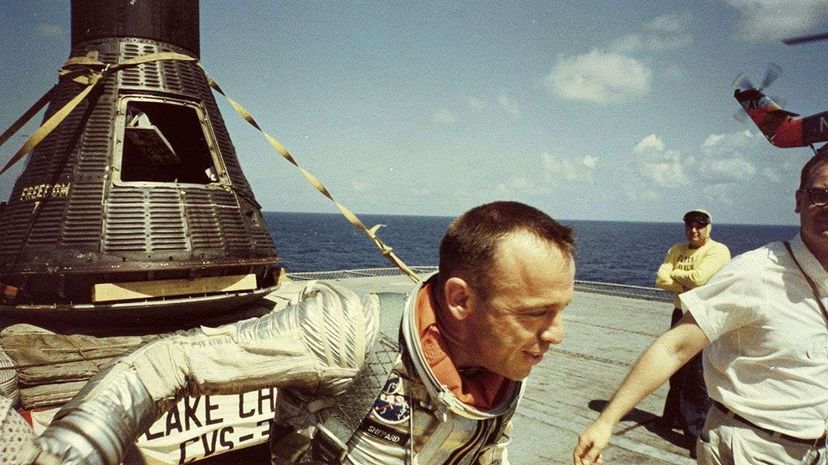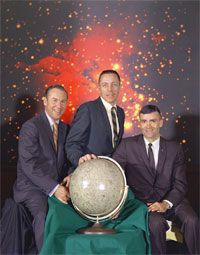In those hours waiting for the Freedom 7 to lift off, Shepard was supposed to have uttered what later became known as Shepard's Prayer (or sometimes the Astronaut's Prayer): "Dear Lord, please don't let me f--- up." However, Shepard later said he was misquoted, and the actual words were, “Don't f--- up, Shepard."
In another piece of misquoting, Shepard supposedly coined the phrase "Everything is A-OK" to describe his successful return to Earth after his historic flight. However, years later when a reporter asked him if had said it, he replied cryptically, "Ask Shorty Powers." Col. Powers was the press officer who passed on the quote to the media in the first place.

